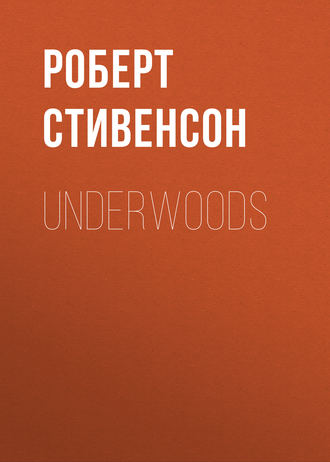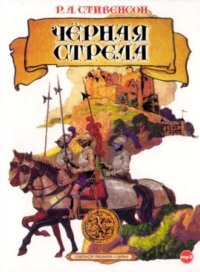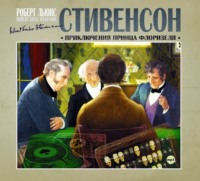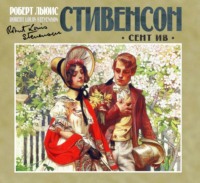 полная версия
полная версияUnderwoods

Robert Louis Stevenson
Underwoods
DEDICATION
There are men and classes of men that stand above the common herd: the soldier, the sailor and the shepherd not unfrequently; the artist rarely; rarely still, the clergyman; the physician almost as a rule. He is the flower (such as it is) of our civilisation; and when that stage of man is done with, and only remembered to be marvelled at in history, he will be thought to have shared as little as any in the defects of the period, and most notably exhibited the virtues of the race. Generosity he has, such as is possible to those who practise an art, never to those who drive a trade; discretion, tested by a hundred secrets; tact, tried in a thousand embarrassments; and what are more important, Heraclean cheerfulness and courage. So it is that he brings air and cheer into the sickroom, and often enough, though not so often as he wishes, brings healing.
Gratitude is but a lame sentiment; thanks, when they are expressed, are often more embarrassing than welcome; and yet I must set forth mine to a few out of many doctors who have brought me comfort and help: to Dr. Willey of San Francisco, whose kindness to a stranger it must be as grateful to him, as it is touching to me, to remember; to Dr. Karl Ruedi of Davos, the good genius of the English in his frosty mountains; to Dr. Herbert of Paris, whom I knew only for a week, and to Dr. Caissot of Montpellier, whom I knew only for ten days, and who have yet written their names deeply in my memory; to Dr. Brandt of Royat; to Dr. Wakefield of Nice; to Dr. Chepmell, whose visits make it a pleasure to be ill; to Dr. Horace Dobell, so wise in counsel; to Sir Andrew Clark, so unwearied in kindness and to that wise youth, my uncle, Dr. Balfour.
I forget as many as I remember; and I ask both to pardon me, these for silence, those for inadequate speech. But one name I have kept on purpose to the last, because it is a household word with me, and because if I had not received favours from so many hands and in so many quarters of the world, it should have stood upon this page alone: that of my friend Thomas Bodley Scott of Bournemouth. Will he accept this, although shared among so many, for a dedication to himself? and when next my ill-fortune (which has thus its pleasant side) brings him hurrying to me when he would fain sit down to meat or lie down to rest, will he care to remember that he takes this trouble for one who is not fool enough to be ungrateful?
R. L. S.Skerryvore, Bournemouth.
NOTE
The human conscience has fled of late the troublesome domain of conduct for what I should have supposed to be the less congenial field of art: there she may now be said to rage, and with special severity in all that touches dialect; so that in every novel the letters of the alphabet are tortured, and the reader wearied, to commemorate shades of mis-pronunciation. Now spelling is an art of great difficulty in my eyes, and I am inclined to lean upon the printer, even in common practice, rather than to venture abroad upon new quests. And the Scots tongue has an orthography of its own, lacking neither “authority nor author.” Yet the temptation is great to lend a little guidance to the bewildered Englishman. Some simple phonetic artifice might defend your verses from barbarous mishandling, and yet not injure any vested interest. So it seems at first; but there are rocks ahead. Thus, if I wish the diphthong ou to have its proper value, I may write oor instead of our; many have done so and lived, and the pillars of the universe remained unshaken. But if I did so, and came presently to doun, which is the classical Scots spelling of the English down, I should begin to feel uneasy; and if I went on a little farther, and came to a classical Scots word, like stour or dour or clour, I should know precisely where I was – that is to say, that I was out of sight of land on those high seas of spelling reform in which so many strong swimmers have toiled vainly. To some the situation is exhilarating; as for me, I give one bubbling cry and sink. The compromise at which I have arrived is indefensible, and I have no thought of trying to defend it. As I have stuck for the most part to the proper spelling, I append a table of some common vowel sounds which no one need consult; and just to prove that I belong to my age and have in me the stuff of a reformer, I have used modification marks throughout. Thus I can tell myself, not without pride, that I have added a fresh stumbling-block for English readers, and to a page of print in my native tongue, have lent a new uncouthness. Sed non nobis.
I note again, that among our new dialecticians, the local habitat of every dialect is given to the square mile. I could not emulate this nicety if I desired; for I simply wrote my Scots as well as I was able, not caring if it hailed from Lauderdale or Angus, from the Mearns or Galloway; if I had ever heard a good word, I used it without shame; and when Scots was lacking, or the rhyme jibbed, I was glad (like my betters) to fall back on English. For all that, I own to a friendly feeling for the tongue of Fergusson and of Sir Walter, both Edinburgh men; and I confess that Burns has always sounded in my ear like something partly foreign. And indeed I am from the Lothians myself; it is there I heard the language spoken about my childhood; and it is in the drawling Lothian voice that I repeat it to myself. Let the precisians call my speech that of the Lothians. And if it be not pure, alas! what matters it? The day draws near when this illustrious and malleable tongue shall be quite forgotten; and Burn’s Ayrshire, and Dr. Macdonald’s Aberdeen-awa’, and Scott’s brave, metropolitan utterance will be all equally the ghosts of speech. Till then I would love to have my hour as a native Maker, and be read by my own countryfolk in our own dying language: an ambition surely rather of the heart than of the head, so restricted as it is in prospect of endurance, so parochial in bounds of space.
BOOK I. —In English
I – ENVOY
Go, little book, and wish to allFlowers in the garden, meat in the hall,A bin of wine, a spice of wit,A house with lawns enclosing it,A living river by the door,A nightingale in the sycamore!II – A SONG OF THE ROAD
The gauger walked with willing foot,And aye the gauger played the flute;And what should Master Gauger playBut Over the hills and far away?Whene’er I buckle on my packAnd foot it gaily in the track,O pleasant gauger, long since dead,I hear you fluting on ahead.You go with me the self-same way —The self-same air for me you play;For I do think and so do youIt is the tune to travel to.For who would gravely set his faceTo go to this or t’other place?There’s nothing under Heav’n so blueThat’s fairly worth the travelling to.On every hand the roads begin,And people walk with zeal therein;But wheresoe’er the highways tend,Be sure there’s nothing at the end.Then follow you, wherever hieThe travelling mountains of the sky.Or let the streams in civil modeDirect your choice upon a road;For one and all, or high or low,Will lead you where you wish to go;And one and all go night and dayOver the hills and far away! Forest of Montargis, 1878.III – THE CANOE SPEAKS
On the great streams the ships may goAbout men’s business to and fro.But I, the egg-shell pinnace, sleepOn crystal waters ankle-deep:I, whose diminutive design,Of sweeter cedar, pithier pine,Is fashioned on so frail a mould,A hand may launch, a hand withhold:I, rather, with the leaping troutWind, among lilies, in and out;I, the unnamed, inviolate,Green, rustic rivers, navigate;My dipping paddle scarcely shakesThe berry in the bramble-brakes;Still forth on my green way I wendBeside the cottage garden-end;And by the nested angler fare,And take the lovers unaware.By willow wood and water-wheelSpeedily fleets my touching keel;By all retired and shady spotsWhere prosper dim forget-me-nots;By meadows where at afternoonThe growing maidens troop in JuneTo loose their girdles on the grass.Ah! speedier than before the glassThe backward toilet goes; and swiftAs swallows quiver, robe and shiftAnd the rough country stockings lieAround each young divinity.When, following the recondite brook,Sudden upon this scene I look,And light with unfamiliar faceOn chaste Diana’s bathing-place,Loud ring the hills about and allThe shallows are abandoned..IV
It is the season now to goAbout the country high and low,Among the lilacs hand in hand,And two by two in fairy land.The brooding boy, the sighing maid,Wholly fain and half afraid,Now meet along the hazel’d brookTo pass and linger, pause and look.A year ago, and blithely paired,Their rough-and-tumble play they shared;They kissed and quarrelled, laughed and cried,A year ago at Eastertide.With bursting heart, with fiery face,She strove against him in the race;He unabashed her garter saw,That now would touch her skirts with awe.Now by the stile ablaze she stops,And his demurer eyes he drops;Now they exchange averted sighsOr stand and marry silent eyes.And he to her a hero isAnd sweeter she than primroses;Their common silence dearer farThan nightingale and mavis are.Now when they sever wedded hands,Joy trembles in their bosom-strandsAnd lovely laughter leaps and fallsUpon their lips in madrigals.V – THE HOUSE BEAUTIFUL
A naked house, a naked moor,A shivering pool before the door,A garden bare of flowers and fruitAnd poplars at the garden foot:Such is the place that I live in,Bleak without and bare within.Yet shall your ragged moor receiveThe incomparable pomp of eve,And the cold glories of the dawnBehind your shivering trees be drawn;And when the wind from place to placeDoth the unmoored cloud-galleons chase,Your garden gloom and gleam again,With leaping sun, with glancing rain.Here shall the wizard moon ascendThe heavens, in the crimson endOf day’s declining splendour; hereThe army of the stars appear.The neighbour hollows dry or wet,Spring shall with tender flowers beset;And oft the morning muser seeLarks rising from the broomy lea,And every fairy wheel and threadOf cobweb dew-bediamonded.When daisies go, shall winter timeSilver the simple grass with rime;Autumnal frosts enchant the poolAnd make the cart-ruts beautiful;And when snow-bright the moor expands,How shall your children clap their hands!To make this earth our hermitage,A cheerful and a changeful page,God’s bright and intricate deviceOf days and seasons doth suffice.VI – A VISIT FROM THE SEA
Far from the loud sea beaches Where he goes fishing and crying,Here in the inland garden Why is the sea-gull flying?Here are no fish to dive for; Here is the corn and lea;Here are the green trees rustling. Hie away home to sea!Fresh is the river water And quiet among the rushes;This is no home for the sea-gull But for the rooks and thrushes.Pity the bird that has wandered! Pity the sailor ashore!Hurry him home to the ocean, Let him come here no more!High on the sea-cliff ledges The white gulls are trooping and crying,Here among the rooks and roses, Why is the sea-gull flying?VII – TO A GARDENER
Friend, in my mountain-side demesneMy plain-beholding, rosy, greenAnd linnet-haunted garden-ground,Let still the esculents abound.Let first the onion flourish there,Rose among roots, the maiden-fair,Wine-scented and poetic soulOf the capacious salad bowl.Let thyme the mountaineer (to dressThe tinier birds) and wading cress,The lover of the shallow brook,From all my plots and borders look.Nor crisp and ruddy radish, norPease-cods for the child’s pinaforeBe lacking; nor of salad clanThe last and least that ever ranAbout great nature’s garden-beds.Nor thence be missed the speary headsOf artichoke; nor thence the beanThat gathered innocent and greenOutsavours the belauded pea.These tend, I prithee; and for me,Thy most long-suffering master, bringIn April, when the linnets singAnd the days lengthen more and moreAt sundown to the garden door.And I, being provided thus.Shall, with superb asparagus,A book, a taper, and a cupOf country wine, divinely sup.La Solitude, Hyères.VIII – TO MINNIE
(With a hand-glass)A picture-frame for you to fill, A paltry setting for your face,A thing that has no worth until You lend it something of your graceI send (unhappy I that sing Laid by awhile upon the shelf)Because I would not send a thing Less charming than you are yourself.And happier than I, alas! (Dumb thing, I envy its delight)’Twill wish you well, the looking-glass, And look you in the face to-night.1869.IX – TO K. DE M
A lover of the moorland bareAnd honest country winds, you were;The silver-skimming rain you took;And loved the floodings of the brook,Dew, frost and mountains, fire and seas,Tumultuary silences,Winds that in darkness fifed a tune,And the high-riding, virgin moon.And as the berry, pale and sharp,Springs on some ditch’s counterscarpIn our ungenial, native north —You put your frosted wildings forth,And on the heath, afar from man,A strong and bitter virgin ran.The berry ripened keeps the rudeAnd racy flavour of the wood.And you that loved the empty plainAll redolent of wind and rain,Around you still the curlew sings —The freshness of the weather clings —The maiden jewels of the rainSit in your dabbled locks again.X – TO N. V. DE G. S
The unfathomable sea, and time, and tears,The deeds of heroes and the crimes of kingsDispart us; and the river of eventsHas, for an age of years, to east and westMore widely borne our cradles. Thou to meArt foreign, as when seamen at the dawnDescry a land far off and know not which.So I approach uncertain; so I cruiseRound thy mysterious islet, and beholdSurf and great mountains and loud river-bars,And from the shore hear inland voices call.Strange is the seaman’s heart; he hopes, he fears;Draws closer and sweeps wider from that coast;Last, his rent sail refits, and to the deepHis shattered prow uncomforted puts back.Yet as he goes he ponders at the helmOf that bright island; where he feared to touch,His spirit readventures; and for years,Where by his wife he slumbers safe at home,Thoughts of that land revisit him; he seesThe eternal mountains beckon, and awakesYearning for that far home that might have been.XI – TO WILL. H. LOW
Youth now flees on feathered footFaint and fainter sounds the flute,Rarer songs of gods; and stillSomewhere on the sunny hill,Or along the winding stream,Through the willows, flits a dream;Flits but shows a smiling face,Flees but with so quaint a grace,None can choose to stay at home,All must follow, all must roam.This is unborn beauty: sheNow in air floats high and free,Takes the sun and breaks the blue; —Late with stooping pinion flewRaking hedgerow trees, and wetHer wing in silver streams, and setShining foot on temple roof:Now again she flies aloof,Coasting mountain clouds and kiss’tBy the evening’s amethyst.In wet wood and miry lane,Still we pant and pound in vain;Still with leaden foot we chaseWaning pinion, fainting face;Still with gray hair we stumble on,Till, behold, the vision gone!Where hath fleeting beauty led?To the doorway of the dead.Life is over, life was gay:We have come the primrose way.XII – TO MRS. WILL. H. LOW
Even in the bluest noonday of July,There could not run the smallest breath of windBut all the quarter sounded like a wood;And in the chequered silence and aboveThe hum of city cabs that sought the Bois,Suburban ashes shivered into song.A patter and a chatter and a chirpAnd a long dying hiss – it was as thoughStarched old brocaded dames through all the houseHad trailed a strident skirt, or the whole skyEven in a wink had over-brimmed in rain.Hark, in these shady parlours, how it talksOf the near Autumn, how the smitten ashTrembles and augurs floods! O not too longIn these inconstant latitudes delay,O not too late from the unbeloved northTrim your escape! For soon shall this low roofResound indeed with rain, soon shall your eyesSearch the foul garden, search the darkened rooms,Nor find one jewel but the blazing log.12 Rue Vernier, Paris.XIII – TO H. F. BROWN
(Written during a dangerous sickness.)I sit and wait a pair of oarsOn cis-Elysian river-shores.Where the immortal dead have sate,’Tis mine to sit and meditate;To re-ascend life’s rivulet,Without remorse, without regret;And sing my Alma GenetrixAmong the willows of the Styx.And lo, as my serener soulDid these unhappy shores patrol,And wait with an attentive earThe coming of the gondolier,Your fire-surviving roll I took,Your spirited and happy book;1Whereon, despite my frowning fate,It did my soul so recreateThat all my fancies fled awayOn a Venetian holiday.Now, thanks to your triumphant care,Your pages clear as April air,The sails, the bells, the birds, I know,And the far-off Friulan snow;The land and sea, the sun and shade,And the blue even lamp-inlaid.For this, for these, for all, O friend,For your whole book from end to end —For Paron Piero’s muttonham —I your defaulting debtor am.Perchance, reviving, yet may ITo your sea-paven city hie,And in a felze, some day yetLight at your pipe my cigarette.XIV – TO ANDREW LANG
Dear Andrew, with the brindled hair,Who glory to have thrown in air,High over arm, the trembling reed,By Ale and Kail, by Till and Tweed:An equal craft of hand you showThe pen to guide, the fly to throw:I count you happy starred; for God,When He with inkpot and with rodEndowed you, bade your fortune leadForever by the crooks of Tweed,Forever by the woods of songAnd lands that to the Muse belong;Or if in peopled streets, or inThe abhorred pedantic sanhedrim,It should be yours to wander, stillAirs of the morn, airs of the hill,The plovery Forest and the seasThat break about the Hebrides,Should follow over field and plainAnd find you at the window pane;And you again see hill and peel,And the bright springs gush at your heel.So went the fiat forth, and soGarrulous like a brook you go,With sound of happy mirth and sheenOf daylight – whether by the greenYou fare that moment, or the gray;Whether you dwell in March or May;Or whether treat of reels and rodsOr of the old unhappy gods:Still like a brook your page has shone,And your ink sings of Helicon.XV – ET TU IN ARCADIA VIXISTI
(TO R. A. M. S.)In ancient tales, O friend, thy spirit dwelt;There, from of old, thy childhood passed; and thereHigh expectation, high delights and deeds,Thy fluttering heart with hope and terror moved.And thou hast heard of yore the Blatant Beast,And Roland’s horn, and that war-scattering shoutOf all-unarmed Achilles, ægis-crownedAnd perilous lands thou sawest, sounding shoresAnd seas and forests drear, island and daleAnd mountain dark. For thou with Tristram rod’stOr Bedevere, in farthest Lyonesse.Thou hadst a booth in Samarcand, whereatSide-looking Magians trafficked; thence, by night,An Afreet snatched thee, and with wings upboreBeyond the Aral mount; or, hoping gain,Thou, with a jar of money, didst embark,For Balsorah, by sea. But chiefly thouIn that clear air took’st life; in ArcadyThe haunted, land of song; and by the wellsWhere most the gods frequent. There Chiron old,In the Pelethronian antre, taught thee lore:The plants, he taught, and by the shining starsIn forests dim to steer. There hast thou seenImmortal Pan dance secret in a glade,And, dancing, roll his eyes; these, where they fell,Shed glee, and through the congregated oaksA flying horror winged; while all the earthTo the god’s pregnant footing thrilled within.Or whiles, beside the sobbing stream, he breathed,In his clutched pipe unformed and wizard strainsDivine yet brutal; which the forest heard,And thou, with awe; and far upon the plainThe unthinking ploughman started and gave ear.Now things there are that, upon him who sees,A strong vocation lay; and strains there areThat whoso hears shall hear for evermore.For evermore thou hear’st immortal PanAnd those melodious godheads, ever youngAnd ever quiring, on the mountains old.What was this earth, child of the gods, to thee?Forth from thy dreamland thou, a dreamer, cam’stAnd in thine ears the olden music rang,And in thy mind the doings of the dead,And those heroic ages long forgot.To a so fallen earth, alas! too late,Alas! in evil days, thy steps return,To list at noon for nightingales, to growA dweller on the beach till Argo comeThat came long since, a lingerer by the poolWhere that desirèd angel bathes no more.As when the Indian to Dakota comes,Or farthest Idaho, and where he dwelt,He with his clan, a humming city finds;Thereon awhile, amazed, he stares, and thenTo right and leftward, like a questing dog,Seeks first the ancestral altars, then the hearthLong cold with rains, and where old terror lodged,And where the dead. So thee undying Hope,With all her pack, hunts screaming through the years:Here, there, thou fleeëst; but nor here nor thereThe pleasant gods abide, the glory dwells.That, that was not Apollo, not the god.This was not Venus, though she Venus seemedA moment. And though fair yon river move,She, all the way, from disenchanted fountTo seas unhallowed runs; the gods forsookLong since her trembling rushes; from her plainsDisconsolate, long since adventure fled;And now although the inviting river flows,And every poplared cape, and every bendOr willowy islet, win upon thy soulAnd to thy hopeful shallop whisper speed;Yet hope not thou at all; hope is no more;And O, long since the golden groves are deadThe faery cities vanished from the land!XVI – TO W. E. HENLEY
The year runs through her phases; rain and sun,Springtime and summer pass; winter succeeds;But one pale season rules the house of death.Cold falls the imprisoned daylight; fell diseaseBy each lean pallet squats, and pain and sleepToss gaping on the pillows. But O thou!Uprise and take thy pipe. Bid music flow,Strains by good thoughts attended, like the springThe swallows follow over land and sea.Pain sleeps at once; at once, with open eyes,Dozing despair awakes. The shepherd seesHis flock come bleating home; the seaman hearsOnce more the cordage rattle. Airs of home!Youth, love and roses blossom; the gaunt wardDislimns and disappears, and, opening out,Shows brooks and forests, and the blue beyondOf mountains. Small the pipe; but oh! do thou,Peak-faced and suffering piper, blow thereinThe dirge of heroes dead; and to these sick,These dying, sound the triumph over death.Behold! each greatly breathes; each tastes a joyUnknown before, in dying; for each knowsA hero dies with him – though unfulfilled,Yet conquering truly – and not dies in vainSo is pain cheered, death comforted; the houseOf sorrow smiles to listen. Once again —O thou, Orpheus and Heracles, the bardAnd the deliverer, touch the stops again!XVII – HENRY JAMES
Who comes to-night? We ope the doors in vain.Who comes? My bursting walls, can you containThe presences that now together throngYour narrow entry, as with flowers and song,As with the air of life, the breath of talk?Lo, how these fair immaculate women walkBehind their jocund maker; and we seeSlighted De Mauves, and that far different she,Gressie, the trivial sphynx; and to our feastDaisy and Barb and Chancellor (she not least!)With all their silken, all their airy kin,Do like unbidden angels enter in.But he, attended by these shining names,Comes (best of all) himself – our welcome James.XVIII – THE MIRROR SPEAKS
Where the bells peal far at seaCunning fingers fashioned me.There on palace walls I hungWhile that Consuelo sung;But I heard, though I listened well,Never a note, never a trill,Never a beat of the chiming bell.There I hung and looked, and thereIn my gray face, faces fairShone from under shining hair.Well I saw the poising head,But the lips moved and nothing said;And when lights were in the hall,Silent moved the dancers all.So awhile I glowed, and thenFell on dusty days and men;Long I slumbered packed in straw,Long I none but dealers saw;Till before my silent eyeOne that sees came passing by.Now with an outlandish grace,To the sparkling fire I faceIn the blue room at Skerryvore;Where I wait until the doorOpen, and the Prince of Men,Henry James, shall come again.





